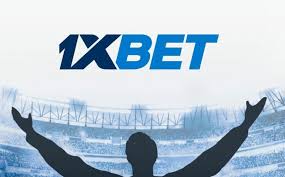The Evolution of Gaming Exploring Cybersport 1xbet

The Evolution of Gaming: Exploring Cybersport 1xbet
The world of competitive gaming has undergone a tremendous transformation over the past couple of decades. What began as a niche hobby has erupted into a global phenomenon, with millions of fans, professional players, and substantial financial investments. In this evolution, platforms such as cybersport 1xbet cybersport 1xbet have played a pivotal role in shaping the competitive landscape.
Understanding Cybersport
Cybersport, or esports, refers to organized, multiplayer video game competitions, particularly between professional players and teams. This sector has gained immense popularity, leading to the formation of leagues, tournaments, and events that attract enormous audiences. The games range widely from first-person shooters (FPS) like “Counter-Strike” to multiplayer online battle arenas (MOBAs) like “Dota 2” and “League of Legends.” The structural integrity and competitive nature of these games have made them appealing not only to players but also to viewers.
The Rise of Competitive Gaming
The origins of competitive gaming can be traced back to the arcade games of the 1980s, but it wasn’t until the late 1990s and early 2000s that we saw the formation of organized tournaments and competitive leagues. The launch of games like “Quake” and “StarCraft” paved the way for the early esports scene. As internet connectivity improved and gaming technologies advanced, competitive gaming began to gain traction globally.
Financial Investments and Sponsorship

As esports grew in popularity, so did the financial investments pouring into the industry. Major companies began to recognize the potential of esports and started sponsoring teams and tournaments. Platforms like 1xbet have made it easier for fans to engage with these events by providing betting opportunities on games and tournaments, allowing viewers to participate actively beyond just watching.
The Role of 1xbet in Cybersport
Cybersport 1xbet has become synonymous with esports betting. The platform offers a comprehensive range of betting options on various esports titles, catering to both novice and seasoned bettors. By providing detailed statistics, odds, and live match updates, 1xbet allows users to make informed betting decisions. The ease of access to betting on esports has also contributed to its wider acceptance and popularity.
Popular Esports Titles
Some of the most popular esports titles not only captivate audiences but also drive significant revenue through sponsorships and merchandise sales. Titles like “League of Legends” boast millions of active players and viewers, thanks to their engaging gameplay and dynamic in-game events. Similarly, the “Overwatch League” showcases the best of team-based FPS games, while games like “FIFA” have brought traditional sports into the realm of esports.
Online Streaming and Accessibility
Online streaming platforms like Twitch and YouTube Gaming have revolutionized the way fans consume esports content. These platforms allow viewers to watch live streams of their favorite games, interact with players, and engage with the broader gaming community. The accessibility of these streams has contributed significantly to the growth of the esports audience, with millions tuning in to watch high-stakes tournaments and casual gaming sessions alike.
Esports Tournaments and Events

Global tournaments, such as “The International” for Dota 2 and the League of Legends World Championship, gather thousands of fans in arenas and millions more watching online. These events are often backed by substantial prize pools, with some tournaments offering multi-million dollar payouts to the winning teams. The adrenaline-fueled atmosphere of live events, combined with the skill and strategy displayed by professional players, creates an electrifying experience that captivates audiences worldwide.
The Future of Esports
As technology continues to evolve, so too will the landscape of esports. We anticipate further integration of virtual reality (VR) and augmented reality (AR) in gaming, potentially changing how esports are played and viewed. Moreover, as traditional sports organizations invest in esports teams and leagues, we may see a convergence of the two worlds, opening up new opportunities for fans and players alike.
Regulation and Professionalism
In the wake of its rapid growth, the esports industry has faced challenges concerning regulation and professionalism. Issues such as player contracts, sponsorship disputes, and the integrity of the games have led to discussions about establishing governing bodies. The establishment of standardized regulations could help enhance the legitimacy of esports, attract more mainstream attention, and protect players and investors.
Community and Culture
At its core, esports is not just about competition; it’s also about community. The culture surrounding esports is rich and diverse, bringing together individuals from all walks of life who share a passion for gaming. Online forums, fan clubs, and social media platforms foster connections among fans, creating a sense of belonging and camaraderie. This community-driven aspect is one of the main draws of esports, providing players and fans with a shared experience that transcends geographic borders.
Conclusion
In conclusion, the world of esports is an exciting, ever-evolving landscape that has captured the hearts of millions. Platforms like cybersport 1xbet have become integral to the industry’s growth, facilitating betting while enhancing viewer engagement. As we move forward, the potential of esports is limitless, promising innovations and experiences that will continue to captivate fans around the globe.
